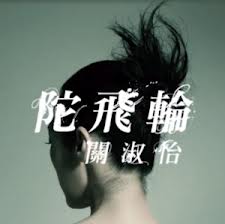I am a firm believer of the theatre as a space of unlimited
imagination. As the lights go down and the stage is left as the only “living”
space in the auditorium, the audience is gradually drawn into a constructed
reality that drives their emotion as the characters unfold their stories before
their eyes. This is the beauty of the theatre. Everything is live and alive.
There is no touch up or second takes as it is with life.
I have heard great things about War Horse since its debut
overseas. After a long period of waiting, it finally comes to Sydney. As such I
would not pass on this great opportunity to see what the hype is about. And the
end result? Not only it did not disappoint, I was reminded once again why I
love live theatre so much.
The story of the play, based on the same novel by Michael
Morpurgo, was not overly complicated. A boy got a horse, they bond, the horse
went to war, the boy followed the horse to the war, and both the boy and the
horse experienced the cruelty of war first hand in their own way. The selling
point of War Horse was the realistic puppetry that recreated the animals in the
play. You got a first taste of the fantastic puppetry skills with the opening
scene when the pony was being auctioned. And then you saw the goose (I love
that goose), the swallow, the vultures, and subsequently other warhorses that
were involved in the war. The fascinating part of the production was the fact
that you know they are puppets, but the amount of work that was put into the
puppets that they actually made you believe that they are real animals with
real personalities. Because of this, the interactions between the animals and
the human characters became very convincing. This is true not only for the
horses, which were manned by three actors on stage, but also the smaller animals,
such as the goose (with one actor only) that completely stole the first few
scenes. This is a make believe executed at its highest level.
Apart from puppetry, the set also installed a huge hanging white
space in the shape of a torn out sketchbook. During the progress of the play
pencil sketched animations were projected onto this space to inform the
audience the change of time and space in the story. I personally believe the choice
of pencil-sketched animation was incidental as the torn sketchbook was referred
to in the story time and time again. Not only this tied in neatly with the
story, it also offered a great amount of flexibility for scene changes without
involving a huge number of set props.
Also the sketches were so nicely drawn that they became pieces of
artworks themselves.
The play also came with a brilliant soundtrack that reflects
the time and events of the story perfectly. An actor who acts as the storyteller sang narration
connecting individual scenes to the audience to inform them of additional
information. As for individual scenes, there are lots of other songs that identify
the time, space and characters relations in the story. There were no real
individual arias as such as they are mostly choruses. Nonetheless, these
choruses added a lot of weight and musical colour to the warring and unresting
tone of the story.
War Horse is a piece of theatrical work perfectly weaved
together. It is a powerful exhibition of great skills working together to
completely immerse the audience into the world of the story. There were many
occasions during the show that I could hear people around me blowing their
noses, wowing, and sighing. It is a show that deploys a huge amount of puppetry
while successfully convinced you that they are not puppets on stage but real
characters, just like all the other actors on the stage. If you are looking for
a perfect or near perfect piece of theatre to spend 2.5 hours with, War Horses
could probably be one of your best options.
*War Horse currently running at the Sydney Lyric Theatre until 30th June 2013


